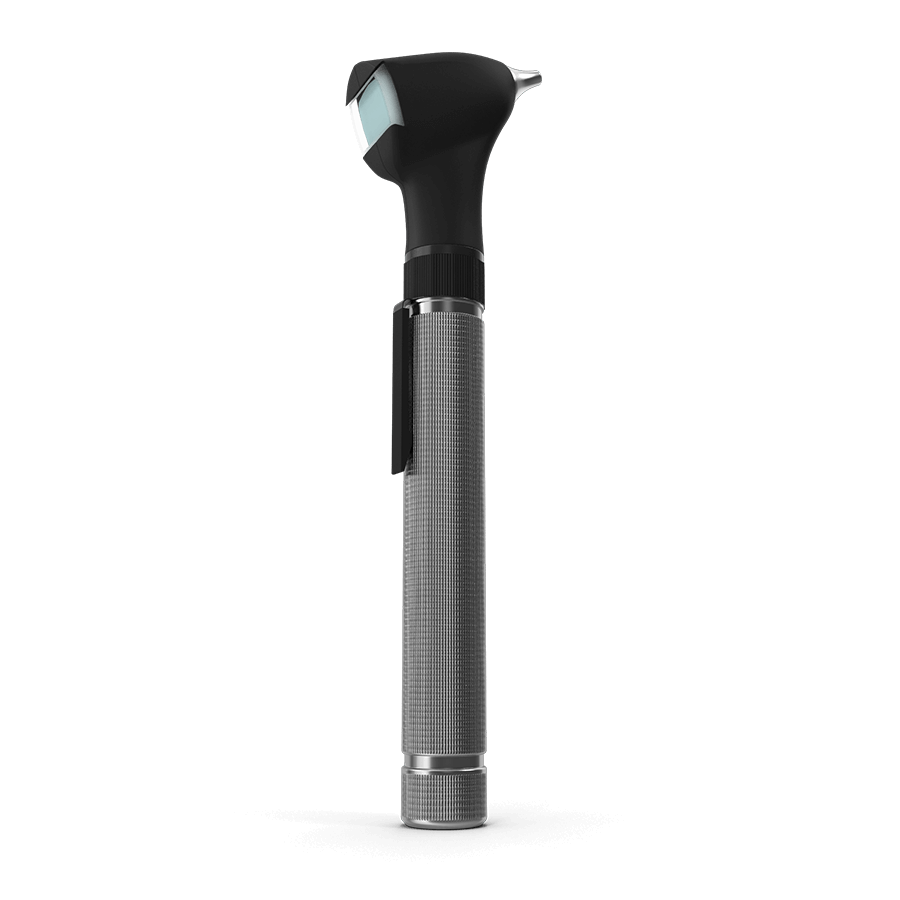Table of Contents
What Is Ototoxicity and Why It Matters
Hearing loss in later life is common, but certain medicines can accelerate or worsen it. Ototoxicity refers to drug-induced injury of the inner ear (cochlea or auditory nerve), leading to hearing loss or tinnitus . Many older adults take multiple chronic medications, and some of these agents can damage hair cells in the ear or alter inner-ear function. Studies show that over 90% of older people use at least one drug with ototoxic potential , and those taking several such medications are more likely to have worse hearing than with aging alone . The hearing loss from ototoxic drugs is usually sensorineural (inner-ear) and affects high frequencies bilaterally, similar to age-related hearing loss . It is often progressive and can be irreversible for some drugs, so awareness is essential.
Aminoglycoside Antibiotics (Gentamicin, Streptomycin, etc.)
Aminoglycosides are a class of powerful antibiotics (e.g. gentamicin, streptomycin, amikacin, tobramycin) used to treat severe infections. They are well-known ototoxins. Hearing damage from aminoglycosides is often permanent and affects high frequencies, typically after days of treatment or over multiple courses . These drugs enter the inner ear via the bloodstream, accumulate in cochlear fluids, and generate reactive oxygen species (ROS) that trigger hair-cell death . The primary mechanism is apoptotic loss of outer hair cells (the sensory cells for sound) . Patients may notice tinnitus (ringing) or difficulty hearing high-pitched sounds. Renal impairment or dehydration can increase risk (drug levels stay higher). Importantly, aminoglycosides should not be mixed with other ototoxic agents. For example, giving a loop diuretic (see below) or vancomycin simultaneously greatly raises the chance of severe hearing loss . If treatment with an aminoglycoside is needed, doctors may monitor blood levels and hearing, use the lowest effective dose, and consider alternatives if possible. Patients should never stop or change antibiotics on their own; always consult a doctor or pharmacist before making any change.
Platinum Chemotherapy Drugs (Cisplatin and Carboplatin)
Cisplatin and related platinum-based chemotherapy drugs are highly ototoxic. They are used for cancers such as testicular, ovarian, or lung cancer. Cisplatin typically causes irreversible, bilateral sensorineural hearing loss, often starting at high frequencies . Hearing loss can occur after the first dose but is more common or severe after repeated cycles . Mechanistically, cisplatin also generates ROS in the cochlea and activates cell death pathways in hair cells . A recent meta-analysis found that about half of patients receiving cisplatin alone developed measurable hearing loss, and combining cisplatin with carboplatin raised the risk even higher . The damage can be permanent and sometimes profound; some patients may need hearing aids or other accommodations. If you are receiving cisplatin, your oncology team will often monitor hearing during treatment. Research is ongoing into protective agents, but currently prevention focuses on careful dosing. Patients should discuss any hearing symptoms with their cancer doctor rather than discontinuing lifesaving therapy.
Loop Diuretics (Furosemide, Bumetanide, Ethacrynic Acid)
Loop diuretics are “water pills” prescribed for conditions like heart failure or hypertension. Furosemide and ethacrynic acid are common examples. These drugs can cause hearing changes, usually reversible. High intravenous doses (especially in renal failure) can lead to sudden hearing loss or tinnitus . The mechanism is different from antibiotics: loop diuretics disrupt fluid and ion balance in the stria vascularis (a part of the inner ear that helps generate the ear’s electrical potential). This causes swelling (edema) in the cochlea and a rapid drop in the endolymphatic potential, impairing the hair cells’ function . Hearing often recovers after the drug is stopped or dose reduced. However, if a loop diuretic is used together with an aminoglycoside antibiotic or in severe kidney impairment, permanent hearing loss can occur . Therefore, these drugs are labeled as ototoxic especially in high doses or vulnerable patients. If you take a loop diuretic and notice sudden hearing changes, inform your doctor promptly.
Salicylates and NSAIDs (Aspirin, Ibuprofen, Naproxen, etc.)
Common painkillers and anti-inflammatory drugs can also affect hearing, particularly at high or chronic doses. The best-known example is aspirin (acetylsalicylic acid). High doses of salicylates (several grams per day, far above normal pain-relief doses) reliably produce tinnitus and hearing loss . This hearing effect is usually reversible within days after stopping the salicylate. Other non-steroidal anti-inflammatory drugs (NSAIDs) like ibuprofen, naproxen, diclofenac, or indometacin can similarly cause temporary tinnitus or a slight rise in hearing thresholds . The mechanism is thought to involve impaired function of the outer hair cells (the “amplifiers” of sound in the cochlea) and some effects on auditory nerve activity . Large epidemiological studies have found that regular, long-term users of aspirin or NSAIDs have a mildly higher risk of developing hearing loss than non-users . For most people taking occasional or recommended doses of these painkillers, the risk is small. But for chronic users (e.g. arthritis patients), even a small risk can add up, especially when other risk factors (age, noise exposure) are present. Paracetamol (acetaminophen) has also been linked to hearing loss in some studies, though its mechanism is less clear.
Other Potentially Ototoxic Drugs
Beyond the above, several less common medications can harm hearing in certain situations:
Antibiotics and other anti-infectives: Other antibiotics like vancomycin or some macrolides (e.g. azithromycin) have occasionally been associated with hearing loss or tinnitus . These are generally rare effects and more likely if blood levels become high (for example, in kidney failure). Certain tuberculosis drugs (viomycin, capreomycin) and loop diuretics have documented ototoxicity as well.
Other chemotherapy drugs: In addition to cisplatin, high doses of carboplatin (a related drug) and vincristine have some risk of ototoxicity, though typically less than cisplatin. All platinum-based drugs warrant caution.
Quinine and antimalarials: Quinine (used for malaria or in tonic water) can cause temporary hearing loss and tinnitus . This is usually reversible after stopping the drug.
Loop diuretic + antibiotic synergy: As noted, combining two ototoxic drugs is dangerous. For example, cases of profound hearing loss have been reported when a loop diuretic (like ethacrynic acid) was given to a patient on aminoglycosides.
Mitochondrial susceptibility: Rare genetic mutations (e.g. mitochondrial 12S rRNA variants) make some people extremely sensitive to aminoglycosides, causing hearing loss after even a single dose . This is uncommon but one reason doctors take family history of hearing loss before prescribing these drugs.
In summary, while many other medicines can have mild or rare effects on hearing, the most important culprits are aminoglycoside antibiotics, platinum chemotherapy agents, loop diuretics, and salicylates/NSAIDs. These categories account for the highest risks documented in medical research.

How These Drugs Damage Hearing (Mechanisms)
Although the exact pathways vary, a common theme is damage to the cochlear hair cells or the biochemical environment of the inner ear. Aminoglycosides and cisplatin penetrate the cochlea (likely through blood vessels in the stria vascularis) and produce free radicals inside hair cells, activating cell-death (apoptotic) pathways . Loop diuretics disrupt the ionic pumps in the stria vascularis, causing edema and loss of the electrochemical gradients that hair cells rely on . Salicylates disturb the outer hair cell amplifying mechanism and even affect spiral ganglion neurons via paradoxical oxidative stress . NSAIDs may alter cochlear blood flow or enzyme function in outer hair cells . In all cases, the result is that sound transduction is impaired or cells die. Notably, once mammalian hair cells are destroyed, they do not regenerate, which is why hearing loss is often irreversible.
Protecting Your Hearing and Next Steps
If you are taking any of the high-risk medications listed above, it is wise to be alert to hearing changes. Inform your doctor or audiologist if you notice new tinnitus, muffled hearing, or trouble understanding speech. Hearing tests (audiometry) can detect changes early. In some cases, a doctor may choose an alternative drug or adjust the dose. For example, prescribing a different antibiotic that is not ototoxic, or using a lower dose of aspirin if possible. Importantly, never stop or alter a prescribed medication without consulting your healthcare provider. Abruptly stopping certain drugs (especially antibiotics or chemotherapy) can be dangerous. Discuss concerns openly – your doctor can weigh the benefits of the medication against the risk to hearing and might suggest monitoring or protective strategies (such as antioxidant supplements in research contexts).
Summary
In conclusion, several classes of medication are known to affect hearing. Aminoglycoside antibiotics (e.g. gentamicin, streptomycin) and cisplatin (a chemotherapy drug) carry the highest risk of permanent sensorineural hearing loss . Loop diuretics (furosemide, ethacrynic acid) and high-dose salicylates/NSAIDs (aspirin, ibuprofen) can cause reversible hearing changes or tinnitus . Less commonly, other drugs like vancomycin, macrolides, quinine, and certain chemotherapy agents can also impact hearing. The damage usually occurs by disrupting inner-ear hair cells or the ionic balance in the cochlea, often via oxidative stress . Because many older adults take combinations of these medicines, it’s important to be aware of ototoxic risks and to have hearing checked if symptoms arise. Always consult healthcare professionals for advice: do not stop medications abruptly, but do raise any concerns about hearing.
Important Notice: This article is for general information only. If you suspect a medication is affecting your hearing, do not discontinue it on your own. Always talk to a qualified doctor or pharmacist before making any changes.
References
Ding D, Liu H, Qi W, et al. Ototoxic effects and mechanisms of loop diuretics. J Otol. 2016;11(4):145-156. DOI: 10.1016/j.joto.2016.10.001 .
Tabuchi K, Nishimura B, Nakamagoe M, et al. Ototoxicity: mechanisms of cochlear impairment and its prevention. Curr Med Chem. 2011;18(31):4866-4871. DOI: 10.2174/092986711797535254 .
Curhan SG, Eavey R, Shargorodsky J, et al. Analgesic use and the risk of hearing loss in men. Am J Med. 2010;123(3):231-237. DOI: 10.1016/j.amjmed.2009.08.006 .
Lang IA, Wallhagen MI, Sennett CM, et al. Prevalence of ototoxic medication use among older adults in Beaver Dam, Wisconsin. J Am Assoc Nurse Pract. 2018;30(1):27-34. DOI: 10.1097/JXX.0000000000000011 .
Bartels H, Lue R. Review of salicylate-induced hearing loss, neurotoxicity, tinnitus and neuropathophysiology. Front Syst Neurosci. 2014;8:61. DOI: 10.3389/fnsys.2014.00061 .
Karasawa T, Steyger PS. An integrated view of cisplatin-induced ototoxicity. Hear Res. 2015;338:9-15. DOI: 10.1016/j.heares.2016.01.005 (Review).
Sun X, Zhou J, Ding Y, et al. Global burden of ototoxic hearing loss associated with platinum-based cancer treatment: a systematic review and meta-analysis. PLOS Med. 2022;19(7):e1003821. DOI: 10.1371/journal.pmed.1003821 .
Pichora-Fuller MK, Schneider BA, Daneman M. How young and old adults listen to and remember speech in noise. J Acoust Soc Am. 1995;97(1):593-608. DOI: 10.1121/1.412282 (review on age-related hearing loss).
Rybak LP, Ramkumar V. Ototoxicity. Kidney Int. 2007;72(8):931-935. DOI: 10.1038/sj.ki.5002447 (on combined drug effects).









